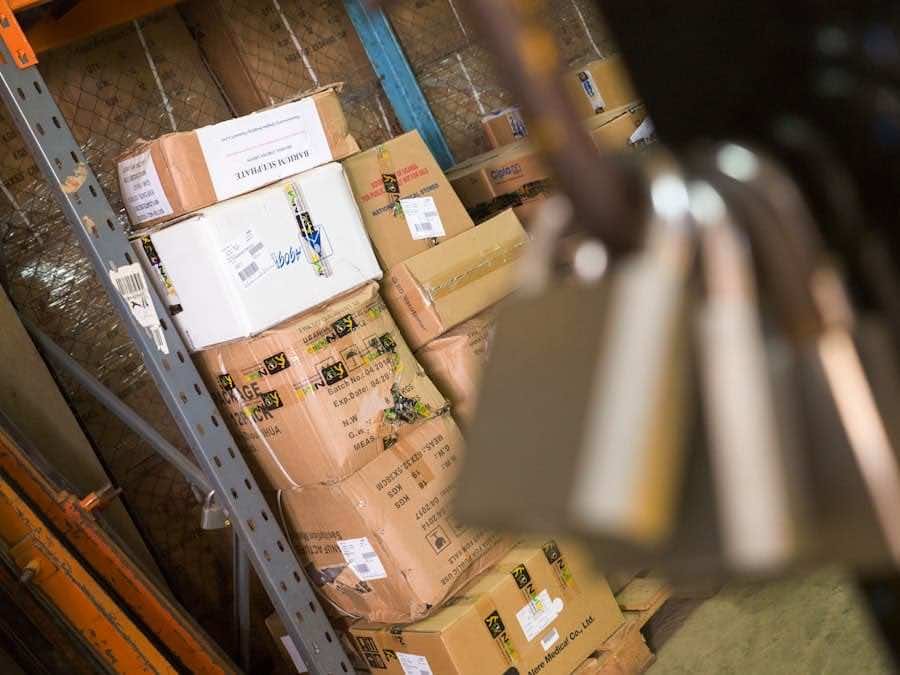Blockchain technology, often associated with cryptocurrencies like Bitcoin, has emerged as a transformative force across various sectors, with retail being one of the most promising areas for its application. At its core, blockchain is a decentralised digital ledger that records transactions across multiple computers in such a way that the registered transactions cannot be altered retroactively. This inherent characteristic of immutability, combined with transparency and security, positions blockchain as a revolutionary tool for the retail industry.
Retailers are increasingly recognising the potential of blockchain to enhance operational efficiency, improve customer trust, and create new business models. The retail landscape is evolving rapidly, driven by changing consumer expectations and technological advancements. Shoppers today demand not only quality products but also transparency regarding the origins and journey of those products.
Blockchain technology addresses these demands by providing a secure and verifiable method of tracking products from their source to the consumer. As retailers begin to adopt blockchain solutions, they are not only improving their operational processes but also fostering a more engaged and informed customer base. The integration of blockchain into retail operations is not merely a trend; it represents a fundamental shift in how businesses interact with consumers and manage their supply chains.
Summary
- Blockchain technology offers a secure and transparent way to track and record transactions in the retail industry.
- Supply chain management can greatly benefit from blockchain technology by providing transparency and traceability of products.
- Loyalty programs can be enhanced through blockchain technology, offering customers a more engaging and secure experience.
- Blockchain technology can improve payment processing and prevent fraud by providing a secure and immutable record of transactions.
- Product authentication and counterfeit prevention can be improved through blockchain technology, ensuring the authenticity of products in the retail industry.
Supply Chain Management and Transparency
One of the most significant applications of blockchain technology in retail is in supply chain management. Traditional supply chains often suffer from inefficiencies, lack of visibility, and issues related to trust among stakeholders. Blockchain offers a solution by providing a single source of truth that all parties can access.
Each transaction or movement of goods can be recorded on the blockchain, creating an immutable history that can be traced back to the origin of the product. This level of transparency is invaluable for retailers who wish to assure customers about the authenticity and ethical sourcing of their products. For instance, companies like Walmart have begun using blockchain to track the provenance of food products.
By implementing a blockchain-based system, Walmart can trace the journey of produce from farm to shelf in mere seconds, compared to the days or weeks it would take using traditional methods. This capability not only enhances food safety by allowing for rapid recalls when necessary but also builds consumer trust. Shoppers are increasingly concerned about food safety and sustainability; knowing that a retailer can provide detailed information about where their food comes from can significantly influence purchasing decisions.
Loyalty Programs and Customer Engagement

Blockchain technology also has the potential to revolutionise loyalty programmes in retail. Traditional loyalty schemes often suffer from issues such as lack of interoperability between different retailers, complex redemption processes, and limited customer engagement. By leveraging blockchain, retailers can create decentralised loyalty programmes that allow customers to earn and redeem points across multiple platforms seamlessly.
This interoperability not only enhances customer experience but also encourages brand loyalty. For example, a retailer could partner with various businesses to create a unified loyalty ecosystem where customers earn tokens for purchases made at any participating store. These tokens could then be redeemed for discounts or rewards across all partners in the network.
Such a system not only simplifies the process for consumers but also provides retailers with valuable data on customer preferences and behaviours. By analysing this data, retailers can tailor their offerings and marketing strategies to better meet the needs of their customers, ultimately driving engagement and sales.
Payment Processing and Fraud Prevention
In an era where online shopping is becoming increasingly prevalent, secure payment processing is paramount for retailers. Blockchain technology offers a robust solution to combat fraud and enhance payment security. Transactions conducted on a blockchain are encrypted and time-stamped, making them nearly impossible to alter or forge.
This level of security is particularly beneficial in reducing chargebacks and fraudulent activities that plague traditional payment systems. Moreover, blockchain can facilitate faster transactions by eliminating intermediaries such as banks or payment processors. For instance, using cryptocurrencies for payments allows for near-instantaneous transactions with lower fees compared to traditional credit card processing.
Retailers like Overstock have already embraced cryptocurrency payments, providing customers with an alternative payment method that is both secure and efficient. As more consumers become comfortable with digital currencies, the adoption of blockchain-based payment systems is likely to grow, further enhancing the retail landscape.
Product Authentication and Counterfeit Prevention
Counterfeit products pose a significant challenge in the retail industry, particularly in sectors such as luxury goods, pharmaceuticals, and electronics. Blockchain technology provides an effective means of product authentication by enabling retailers to create a digital identity for each product that can be verified throughout its lifecycle. This digital identity includes information about the product’s origin, manufacturing process, and ownership history, all securely stored on the blockchain.
For example, luxury brands like LVMH have implemented blockchain solutions to combat counterfeiting by providing customers with a way to verify the authenticity of their purchases. By scanning a QR code linked to the product’s blockchain record, consumers can access detailed information about the item’s provenance and authenticity. This not only protects consumers from fraud but also helps brands maintain their reputation and integrity in the market.
As counterfeit products continue to threaten consumer safety and brand value, blockchain’s role in product authentication will become increasingly vital.
Inventory Management and Tracking

Effective inventory management is crucial for retailers seeking to optimise operations and reduce costs. Blockchain technology enhances inventory tracking by providing real-time visibility into stock levels across various locations. Each transaction related to inventory—whether it’s receiving new stock or selling products—can be recorded on the blockchain, allowing retailers to maintain accurate records without relying on manual updates or centralised databases.
For instance, companies like IBM have developed blockchain solutions that enable retailers to track inventory movements in real-time. This capability allows businesses to respond quickly to changes in demand or supply chain disruptions, minimising stockouts or overstock situations. Additionally, accurate inventory tracking can lead to improved forecasting and planning, ultimately resulting in better resource allocation and reduced waste.
As retailers continue to face challenges related to inventory management, blockchain technology offers a promising avenue for enhancing efficiency and responsiveness.
Smart Contracts and Automation
Smart contracts are self-executing contracts with the terms of the agreement directly written into code on the blockchain. In retail, smart contracts can automate various processes, reducing the need for intermediaries and streamlining operations. For example, when certain conditions are met—such as payment being received—smart contracts can automatically trigger actions like order fulfilment or inventory updates.
This automation not only speeds up processes but also reduces human error associated with manual interventions. Retailers can implement smart contracts for various applications, including supplier agreements, payment processing, and even customer loyalty rewards. For instance, a retailer could set up a smart contract that automatically issues loyalty points when a customer makes a purchase above a certain threshold.
This level of automation enhances operational efficiency while providing customers with immediate rewards for their loyalty.
Data Security and Privacy Protection
As retailers increasingly rely on digital platforms and data-driven strategies, data security and privacy protection have become paramount concerns. Blockchain technology offers enhanced security features that protect sensitive customer information from breaches or unauthorised access. The decentralised nature of blockchain means that data is not stored in a single location; instead, it is distributed across multiple nodes, making it significantly more difficult for hackers to compromise.
Furthermore, blockchain allows consumers to have greater control over their personal data. With traditional systems, customers often have little say over how their information is used or shared; however, blockchain enables individuals to grant or revoke access to their data as they see fit. This shift towards greater transparency and control can foster trust between retailers and consumers, ultimately leading to stronger relationships and increased customer loyalty.
As data privacy regulations become more stringent globally, adopting blockchain technology may not only be advantageous but necessary for retailers aiming to comply with legal requirements while safeguarding customer trust. In summary, the integration of blockchain technology into retail operations presents numerous opportunities for enhancing efficiency, transparency, and customer engagement across various facets of the industry. From supply chain management to payment processing and data security, blockchain offers innovative solutions that address some of the most pressing challenges faced by retailers today.
As this technology continues to evolve and gain traction within the sector, its potential impact on retail practices will undoubtedly be profound.
Blockchain technology is revolutionising the retail industry, with various use cases being explored to enhance efficiency and security. One interesting article that delves into the benefits of using virtual landline numbers in business communication can be found here. This innovative approach to communication can help retailers streamline their operations and improve customer service. By incorporating blockchain technology and virtual landline numbers, retailers can stay ahead of the curve and provide a seamless shopping experience for their customers.
FAQs
What is blockchain technology?
Blockchain technology is a decentralized, distributed ledger that records transactions across many computers in such a way that the registered transactions cannot be altered retroactively.
How is blockchain technology used in retail?
Blockchain technology is used in retail to improve transparency, traceability, and security in supply chain management, to enable secure and efficient digital payments, and to create loyalty programs and customer rewards.
What are some specific use cases of blockchain in retail?
Some specific use cases of blockchain in retail include supply chain management, product authentication, digital payments, loyalty programs, and customer data management.
How does blockchain technology improve supply chain management in retail?
Blockchain technology improves supply chain management in retail by providing a transparent and immutable record of every transaction and movement of goods, which helps to reduce fraud, counterfeiting, and errors in the supply chain.
How does blockchain technology enable secure and efficient digital payments in retail?
Blockchain technology enables secure and efficient digital payments in retail by providing a decentralized and tamper-proof record of transactions, which reduces the risk of fraud and enables faster and cheaper cross-border payments.
What are the benefits of using blockchain technology in retail?
The benefits of using blockchain technology in retail include improved transparency, traceability, and security in supply chain management, reduced fraud and counterfeiting, lower transaction costs, and enhanced customer trust and loyalty.
